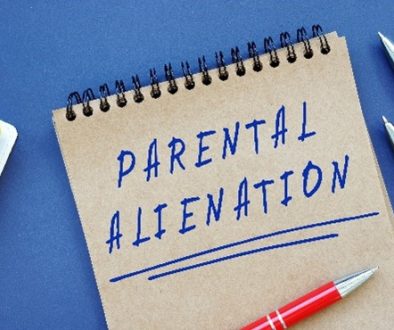International Custody: Which Country Decides
 Chafin v. Chafin, 568 U.S. 165, 133 S. Ct. 1017 (2013) involved an international custody dispute between Sgt. Jeffrey Chaffin, a member of the U.S. military, and Lynn Chafin, his wife and a Scottish UK citizen. During divorce proceedings, both parents sought custody of their child, E.C., and each sought to have his and her home country determine custody. The case is an illustration of the complexities that can arise when parents of different nationalities divorce.
Chafin v. Chafin, 568 U.S. 165, 133 S. Ct. 1017 (2013) involved an international custody dispute between Sgt. Jeffrey Chaffin, a member of the U.S. military, and Lynn Chafin, his wife and a Scottish UK citizen. During divorce proceedings, both parents sought custody of their child, E.C., and each sought to have his and her home country determine custody. The case is an illustration of the complexities that can arise when parents of different nationalities divorce.
Facts of the Case
Jeffrey and Lynn Chafin married in Scotland in 2006. Their daughter, E.C., was born the next year in Germany, where Sgt. Chafin was stationed. When Sgt. Chafin was deployed to Afghanistan, Mrs. Chafin took E.C. to live with her in Scotland. After Sgt. Chafin’s tour of duty in Afghanistan ended, he was transferred to Alabama, and Mrs. Chafin and E.C. joined him there. According to lawyers for Sgt. Chafin, Mrs. Chafin initiated the paperwork for permanent residency and declared her intent to permanently relocate to the United States.
Sgt. Chafin filed for divorce in 2010 and sought custody in Alabama. Mrs. Chafin was subsequently arrested for domestic violence and was deported back to Scotland. E.C. remained with her father in the United States. Once in Scotland, Mrs. Chafin contended that E.C. was being unlawfully detained in the United States by her father. She filed a petition in U.S. District Court requesting E.C.’s return to Scotland. The court found that the child’s habitual residence was in Scotland and granted the petition – a ruling which effectively put custody determination in the control of the Scottish courts. The same day, Mrs. Chafin and E.C. left for Scotland. Sgt. Chafin appealed the court’s decision, and the 11th Circuit Court dismissed the appeal as moot on the grounds that, once a child has been taken to a foreign country, the United States courts are powerless to grant relief.
In Fawcett v McRoberts, 326 F. 3d 491, a similar case, the 4th Circuit Court of Appeals ruled that an appeal was not moot and allowed the case to proceed. This circuit split resulted in the Supreme Court taking the rare step of hearing a domestic relations case. Just as the district court was engaged to determine the habitual residence of the child and not to consider the actual merits of the custody dispute in the Chafin case, however, the Supreme Court tackled only the legal issues of mootness, stays and expeditious handling. Who the best parent was to raise E.C. could not even enter into the discussion until the judiciary had decided which country’s courts had jurisdiction to hear and decide on the merits of the actual custody cases.
The Hague Convention
The underlying legal context of the Chafin case is the Hague Convention, a multinational treaty that provides rules as to where custody disputes should be resolved when parents are in different countries. Its goal is to ensure that children are promptly returned to their country of habitual residence following kidnapping, abduction, removal or retention of a child by one parent without the permission of the other. The Convention’s intention is to preserve whatever status quo child custody arrangement existed immediately before the wrongful removal or retention, as to deter parents from fleeing to another country seeking a more sympathetic court.
In Chafin, E.C. had resided in Scotland for several years and in the United States for less than one. A layman might quickly conclude that E.C.’s habitual residence was in Scotland. However, the Hague Convention deliberately refrains from offering a precise definition of habitual residence. Some legal experts contend the sole criterion should be physical residence over time; others that the element of physical presence needs to be considered in conjunction with evidence of an intention of continued future residence. If it could have been proven that Lynn Chafin intended to permanently immigrate to the United States, Sgt. Chafin’s appeal would have had merit according to this second definition.
The appeal was denied on the grounds of mootness.
The Issues and the Supreme Court’s Decisions
Mootness
Federal courts have the power to act when the parties to the case have a concrete interest in the outcome of the litigation. A case becomes moot when it is impossible for a court to grant effectual relief. Could Jeffry Chafin’s appeal result in effectual relief? He and his estranged wife continued to disagree over E.C.’s habitual residence and over an award of attorneys’ fees. Mrs. Chafin’s attorneys argued the appeal was moot since the district court lacked authority to order E.C. returned to the United States, and any order to return, if issued, would not be enforced by the Scottish courts.
The Supreme Court rejected these arguments stating they conflated merits with mootness: whether Sgt. Chaffin’s request for relief could succeed had no bearing on mootness. The court held that the return of a child to his or her habitual residence pursuant to an order of a trial court does not render an appeal from that order moot.
Stays and Expeditious Handling
If appeals were found to be moot once a child has left the country, could stays be entered to preclude mootness and preserve appellate rights?
The Hague Convention emphasizes that, in the best interests of the child, disputes should be swiftly resolved, explicitly mentioning a time period of less than 6 weeks as desirable. If the lower courts had allowed a stay of the decision to allow Mrs. Chafin to take E.C. to Scotland, would the stay have violated this key tenet of the Hague Convention?
The Supreme Court found that stays entered to preclude mootness would undermine the goal of prompt return of displaced children. That said, the Justices noted that lower courts possessed the “familiar judicial tools of expediting proceedings and granting stays where appropriate”. Chafin, 568 U.S. 165, 178. The Supreme Court’s decision on mootness serves to eliminate the need for such stays. Justice Roberts summed up the Court’s stance aptly when he concluded, “The best thing is to hold things up briefly, so that the child doesn’t have to go overseas and then have to be brought back.” [12-5-12 ORAL ARG TR 43:23-25] Failing the assurance of the right to appellate review, he said, the message for other parents would be “Get on the first plane out and then you’re home free.” [12-5-12 ORAL ARG TR 53:15-16].
Conclusion
For the principals, the Chafin case was a miasma of legalities. The important decisions for both Sgt. Chafin and Mrs. Chafin were where and in whose custody E.C. would grow up. The road to that decision took them through some very arcane legal issues. SCOTUS ultimately held that return of the child to Scotland did not render the case moot. Relief was still available for the prevailing parent on appeal because the United States courts continued to have jurisdiction over Mrs. Chafin and the custody issues. Neither because the child was no longer present in the United States, nor because of the possibility that Mrs. Chafin would not comply with an order directing return of the child, meant that the issues were moot. The unfortunate conclusion for parents is that they can win the legal battles, as Jeff Chafin ultimately did, yet still lose the war and end up having custody decided by a foreign court. Although most international custody disputes are not quite as complex as the Chafin case, they are all more legally challenging than a domestic custody dispute and require navigating through complex custody laws.


